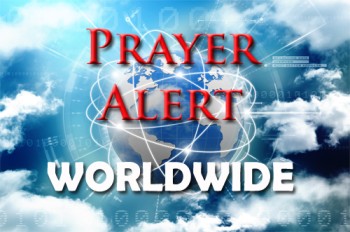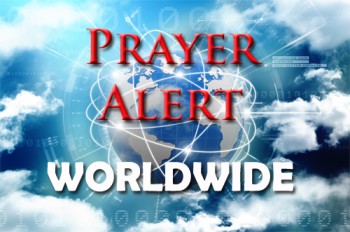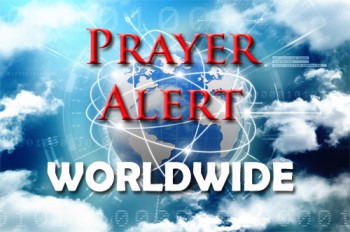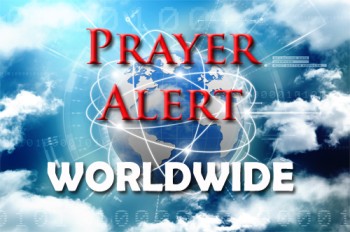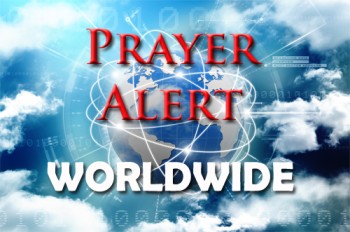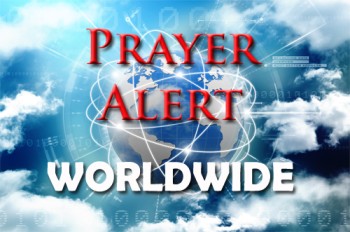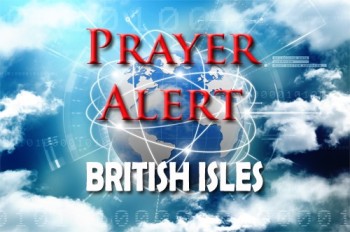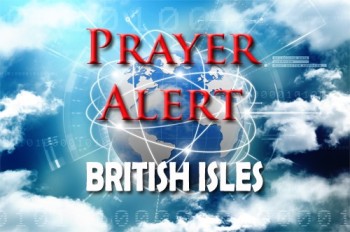USA: Trump’s tariff changes cause widespread global confusion
Only two days after Donald Trump, announcing Japanese-backed investments tied to a major trade pact, posted ‘America is WINNING again’, the Supreme Court ruled much of his tariff regime unlawful, angering Trump and creating huge uncertainty across global markets. Almost immediately, he announced new tariffs, which means that most countries - including those that had negotiated preferential agreements - now face a 15% tariff on exports to the USA. Some nations which made concessions, such as the UK and Japan, may gain little advantage, while others, including China and India, have seen tariff reductions without comparable compromises. The new tariffs will be valid for only 150 days, with confusion about what might happen thereafter. Data suggests much of the economic burden of tariffs has fallen on US businesses and consumers. Meanwhile, Trump has drawn widespread incredulity and criticism for using his position to advertise expensive watches bearing his name: see
Nigeria: government paid huge ransom for kidnapped schoolchildren
An investigation has alleged that the Nigerian government paid a substantial ransom to secure the release of up to 230 children and staff abducted from a Catholic boarding school in November. The pupils were taken from St Mary’s in Niger state during a mass kidnapping by Boko Haram. Intelligence sources told AFP that millions of dollars were delivered by helicopter to militants in northeastern Borno state after negotiations reportedly led by national security adviser Nuhu Ribadu. Two Boko Haram commanders were also said to have been freed. Officials publicly denied paying any ransom, insisting that government agents do not negotiate with kidnappers. The Islamist insurgent group, active since 2009, has carried out widespread violence and abductions across northern Nigeria. Reports suggest the children were released in stages after confirmation that the payment had been received.
Mexico: troops called in to curb violence after cartel leader killed
The government has deployed thousands of troops after deadly unrest followed the death of cartel leader Nemesio Oseguera Cervantes, known as El Mencho. Around 9,500 soldiers have been sent to western states, including 2,500 reinforcements to Jalisco, where he was captured. The Jalisco New Generation Cartel, long regarded as one of Mexico’s most powerful criminal organisations, responded with coordinated attacks. Roads were blocked with burning vehicles, spikes and debris, while banks and businesses were set alight. Clashes between cartel members and the National Guard left dozens dead, including security personnel and alleged gang members. El Mencho was seriously wounded on 22 February during a firefight with special forces and died while being transported to Mexico City. President Claudia Sheinbaum praised the operation and pledged to restore peace. Authorities say order is gradually returning, though tensions remain high in affected communities. The level of violence has been made worse by warfare between and even within different cartels: see
Panama: government takes over control of ports from Hong Kong company
The two key ports at either end of the Panama Canal have been taken over by the Panamanian government. This follows a supreme court ruling last month that the renewed 25-year concession given to Hong Kong conglomerate CK Hutchison to operate the ports was ‘unconstitutional’. The authorities have entered the terminals at Balboa and Cristobal and assumed administrative and operational control. A government decree authorised the Panama Maritime Authority to do this ‘for reasons of urgent social interest’. Beijing described the ruling as ‘absurd’ and ‘shameful’, while warning that the Latin American country would pay ‘heavy prices both politically and economically’; in response, president Jose Raul Mulino defended Panama’s judicial independence and strongly rejected China’s threats. The takeover marks a significant development in the strategic and political debate surrounding one of the world’s most vital shipping routes.
Cuba: Russia, Canada, Mexico promise aid for beleaguered island
Russia’s deputy prime minister Alexander Novak has said Moscow is discussing the possibility of supplying fuel to Cuba as the USA tightens restrictions on oil shipments to the island. The move follows new US measures aimed at cutting off Venezuelan oil supplies and threatening sanctions on countries that export fuel to Cuba. Russia, previously a major supplier alongside Venezuela and Mexico, has criticised the restrictions, warning of humanitarian consequences. Cuba relies heavily on imported fuel to power its electricity grid and already faces economic strain under longstanding US sanctions. The UN has cautioned that further shortages could deepen hardship. In response, Canada and Mexico have pledged humanitarian aid, including food and essential supplies. Washington has also announced $6m in humanitarian aid, provided that it is not distributed by the Cuban government. More than two million people have left the island since the Covid pandemic, due to the collapse of the tourism sector. Breaking news: four men in a Florida-registered speedboat have been killed by a Cuban border patrol. See
Laos: another opposition activist killed
Amid growing concern over repression in Laos, another activist, Bao Mo Khaen, has been killed. Known for criticising the ruling Lao People’s Revolutionary Party online, he was reportedly detained by soldiers in Vientiane on 14 February, and his body was discovered beside a damaged motorbike six days later. His death follows other cases involving Lao dissidents in recent years, including enforced disappearances and attacks at home and abroad. Observers note that such incidents often coincide with politically sensitive periods such as the national election on 22 February. Laos remains a one-party state, and the election was conducted without opposition candidates. Economic pressures, rising debt and youth emigration have added to public discontent. Human rights advocates argue that the pattern of violence reflects efforts to silence dissent and instil fear. Authorities have not publicly provided detailed explanations regarding Khaen’s death, and concerns over accountability persist.
‘Snowdrops’ pause for thought from Archbishop Stephen
On Shrove Tuesday, instead of speaking about pancakes or fasting, Archbishop Stephen Cottrell reflected on snowdrops in his ‘pause for thought’ on Radio 2. Walking through his garden in Bishopthorpe, he was struck by their fragile beauty and quiet strength. Blooming in winter’s cold earth, snowdrops herald the coming of spring, offering hope when the landscape still seems lifeless. Yet they are fleeting; by March they have faded. He recalled a deeply personal memory from thirty years ago, when he took the funeral of his one-year-old godson. The Sisters at the hospice placed snowdrops on the small coffin. To him, they spoke more eloquently than words of a life that was short, fragile, and beautiful. Linking this reflection to Lent and Easter, he reminded listeners that every human life has a beginning and an end, each miraculous and precious. Snowdrops, appearing in winter and disappearing quickly, invite us to reflect on mortality, hope, and the abundant life brought through Christ’s death and resurrection.
Philippines: angels direct operations for UK missionary
Yorkshire missionary Andy Newlove has shared remarkable stories of God’s faithfulness during fifteen years serving in the Philippines. His life, he says, began with a miracle. After a miscarriage, doctors doubted his mother would carry a child to term, but she prayed and dedicated her son to God. Andy was born, though tragedy followed when his father died while he was still a baby. Growing up, he witnessed many answers to prayer and came to believe that the gifts of the Holy Spirit remain active today. As a child he experienced healing after a severe scald, and later prayed for a girl dying of meningitis who recovered and eventually became his wife, Tracey. When she was 33 weeks pregnant with their first child, they moved 7,000 miles to the Philippines. There they survived earthquakes, typhoons, and dangerous journeys while planting churches and training local believers. Miracles, unity among pastors, and revival marked their years of service. Today their legacy continues through family and Filipino leaders serving Christ worldwide.
Andrew arrested on suspicion of misconduct
Following an investigation by Thames Valley police, Andrew Mountbatten-Windsor has been arrested on suspicion of misconduct in public office. Officers detained the 66-year-old at the Sandringham estate and are searching properties in Norfolk and Berkshire, including Royal Lodge in Windsor. The arrest follows a number of complaints that he shared confidential material with convicted sex offender Jeffrey Epstein. Andrew has consistently denied wrongdoing, and has not commented on the latest allegations. Misconduct in public office involves a public official wilfully neglecting duty or abusing the public’s trust without reasonable justification. To protect the integrity of the investigation, the police are limited in what they can disclose due to contempt of court laws and privacy rules. In a statement, King Charles III said he learned of the arrest ‘with the deepest concern’ and stressed that the law must take its course, pledging full cooperation while continuing royal duties.
Local council elections reinstated after government U-turn
Thirty English councils are scrambling to reinstate local elections after the Government reversed plans to delay them until 2027. The ballots, affecting more than 4.5 million voters, will now go ahead on 7 May following legal advice sought after a challenge from Reform UK. The ministry of housing and local government confirmed the U-turn, alongside a £63 million fund to support council reorganisation. Nigel Farage described the decision as a 'victory for democracy', claiming the Government had backed down. However, election administrators warn that months of essential preparation have been lost. Officials had paused planning to avoid unnecessary expense and now face an intense period of catch-up to secure polling stations, staff, and smooth operations. Councillors across parties have expressed frustration, citing confusion and instability caused by repeated changes. Some fear wider plans for devolution and local government reform are now uncertain, leaving councils and residents seeking clarity.

